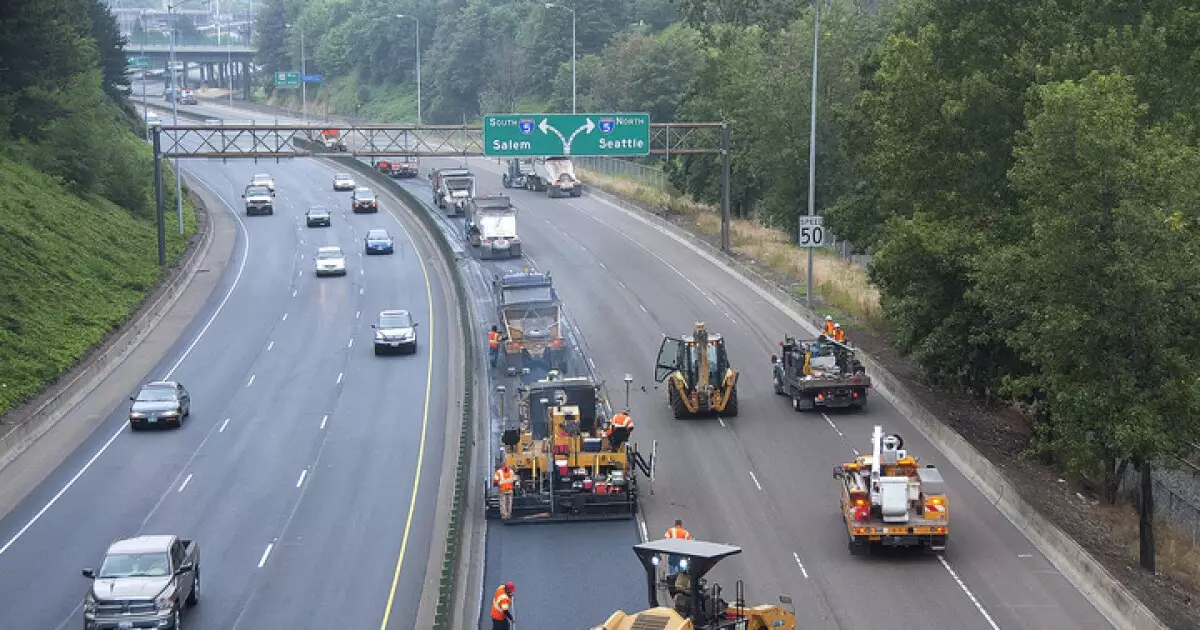14.6 Billion Reasons Oregon’s Transportation Bill is a Missed Opportunity

The Oregon state legislature is currently caught in the throes of a contentious debate involving House Bill 2025, a transportation bill proposing a staggering $14.6 billion increase in taxes and fees over the next decade. While legislators claim this spending is necessary for upgrading deteriorating infrastructure, one can’t overlook the financial burden this imposes on the average Oregonian. To many, it feels like a blunt force trauma to taxpayers, rather than a carefully executed plan to solve real issues. How can lawmakers champion the importance of infrastructure development while simultaneously neglecting the opinions and concerns of the very constituents they represent?
Critics of the bill assert that there exists a disconnect between the needs of the people and the ambitions of their elected officials. Despite a statewide listening tour that gathered public testimonies regarding transportation problems, the extent to which these concerns were genuinely incorporated into the bill remains questionable. Detractors, including a significant portion of the Republican party and even some members of the Democratic camp, view the bill as little more than a platform for the ruling party to consolidate power through taxation, a staggering notion especially given that 61% of Oregonians oppose these hikes according to recent polling data.
Accountability or Offloading Responsibility?
The proponents of House Bill 2025 argue that it represents a “transformative investment,” promising to alleviate the state’s infrastructure issues by generating between $1.8 billion and $2 billion annually. However, the question remains: will this influx of cash result in genuine improvements to our roads and bridges, or will it merely create a veil of accountability that masks inefficiencies and graft within the Oregon Department of Transportation (ODOT)?
Supporters assert that stabilizing bridges, fixing potholes, and maintaining roads will all contribute to safer travel for Oregonians. What they don’t mention is the historical trend of tax increases leading to slow, if any, tangible benefits for the taxpayers footing the bill. If there is a lack of rigorous oversight and accountability mechanisms in place, as has been the case in the past, these promises mean little in practical terms.
Moreover, the strong-arm tactics employed by Senate President Rob Wagner—removing dissenting voices like Sen. Mark Meek from committees to garner support—paint a troubling picture of political maneuvering that does more to stifle debate than to elevate the quality of governance. This is not just a matter of leadership but a question of integrity in the legislative process.
Alternative Visions for Oregon’s Future
Given the contentious nature of House Bill 2025, it is imperative that alternative solutions be explored. Republicans have proposed a transportation plan devoid of tax increases, suggesting a more prudent fiscal approach by reallocating funds from existing climate relief programs to cover transportation needs. This idea merits more serious consideration, especially as it aims to avoid additional financial strain on Oregonians already facing rising costs in numerous aspects of their daily lives.
Imagine a landscape where sound fiscal management takes precedence over expansive tax hikes. If the will exists to ensure accountability, why not explore responsible alternatives that maintain the current tax structure but allocate existing resources more efficiently? An emphasis on fiscal conservatism could ultimately cultivate a political atmosphere that prioritizes the financial well-being of Oregonians while still addressing pressing infrastructure needs.
Public Sentiment and Legislative Responsibility
Ultimately, the legislature must acknowledge the growing sentiment among constituents dissatisfied with existing tax structures, particularly in light of economic challenges facing families today. It is imperative that lawmakers ask themselves whether they are genuinely serving their constituents or merely catering to their own political aspirations. Oregonians are tired of being pushed into a corner by political maneuvers that obscure their voices; they deserve representatives who will listen and act accordingly.
What Oregon needs is a clear vision that aligns with the values and priorities of its residents—something that House Bill 2025 falls significantly short of delivering. Political accountability, financial prudence, and a genuine connection to the public are non-negotiable if any transportation initiative is to gain the trust and support of the people it aims to serve.





